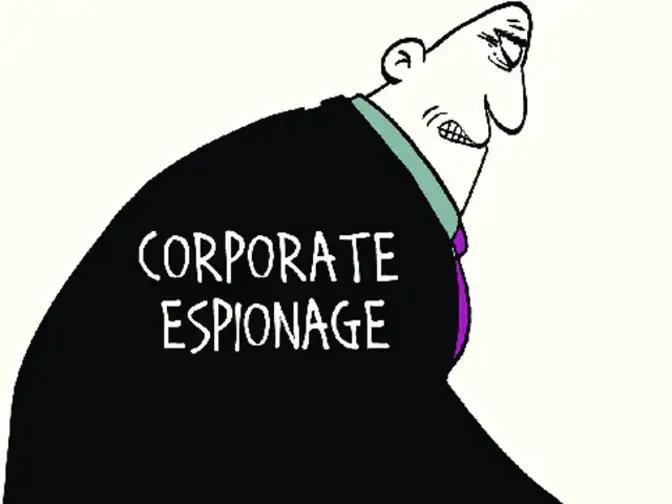

"Foreign supply disruptions could suspend US firms'' deliveries of finished systems within only a few days, as most carry limited inventories. Corporate espionage is espionage conducted for commercial or financial purposes. Some of such instances are mentioned herein: In 1999, one of the most famous cases of corporate treachery, a Taiwanese company head was arrested as he was convicted to have paid an Avery Dennison (U.S. Taiwan is now responsible for about 70 per cent of all semiconductor production for hire-producing chips designed and marketed by others." This growing US dependence, said Hutchings, makes US IT firms vulnerable to interruptions of foreign-built critical components, whether intentional or accidental. Corporate espionage gained more attention in the last few decades.
#Corporate espionage in outsourcing it Pc#
Information technology, said Hutchings, has become as important to the US economy as oil, and the growing dependency of the US on foreign IT "raises concerns for corporate as well as national security." For instance, he said, "half of the world''s laptops, one quarter of desktop computers, and half of all PC motherboards are now assembled in China. Globally networked information systems, he said, also present vulnerabilities, and even the simplest computer threats pose real risks for US companies'' business interests and proprietary knowledge. Indeed, the more questionable the activity, the greater likelihood of outsourcing to these clandestine agents. F or espionage of the cloak-and-dagger variety, it is hard to beat John le Carr or Ian Fleming. To both protect and augment powerful corporate interests, their activities have centred on two principal objectives: to suppress dissent, whether internal or external, and to ensure competitive advantage by engaging in corporate espionage.

Pointing out that collectors last year employed a wide variety of techniques in their quest to circumvent US restrictions in the acquisition of sensitive manufacturing processes, he said foreigners often through middlemen acquired sensitive US technologies simply by requesting them via e-mail, faxes or telephones. Outsourcing, collaborative engineering and the virtual corporation have substantially increased the risk of loss, through both inadvertence and espionage. Companies need to take it more seriously. US openness to foreign trade and investment and its commitment to global information-sharing through academic and scientific exchange, Hitchings said unfortunately leave US technologies highly exposed to foreign exploitation.


 0 kommentar(er)
0 kommentar(er)
